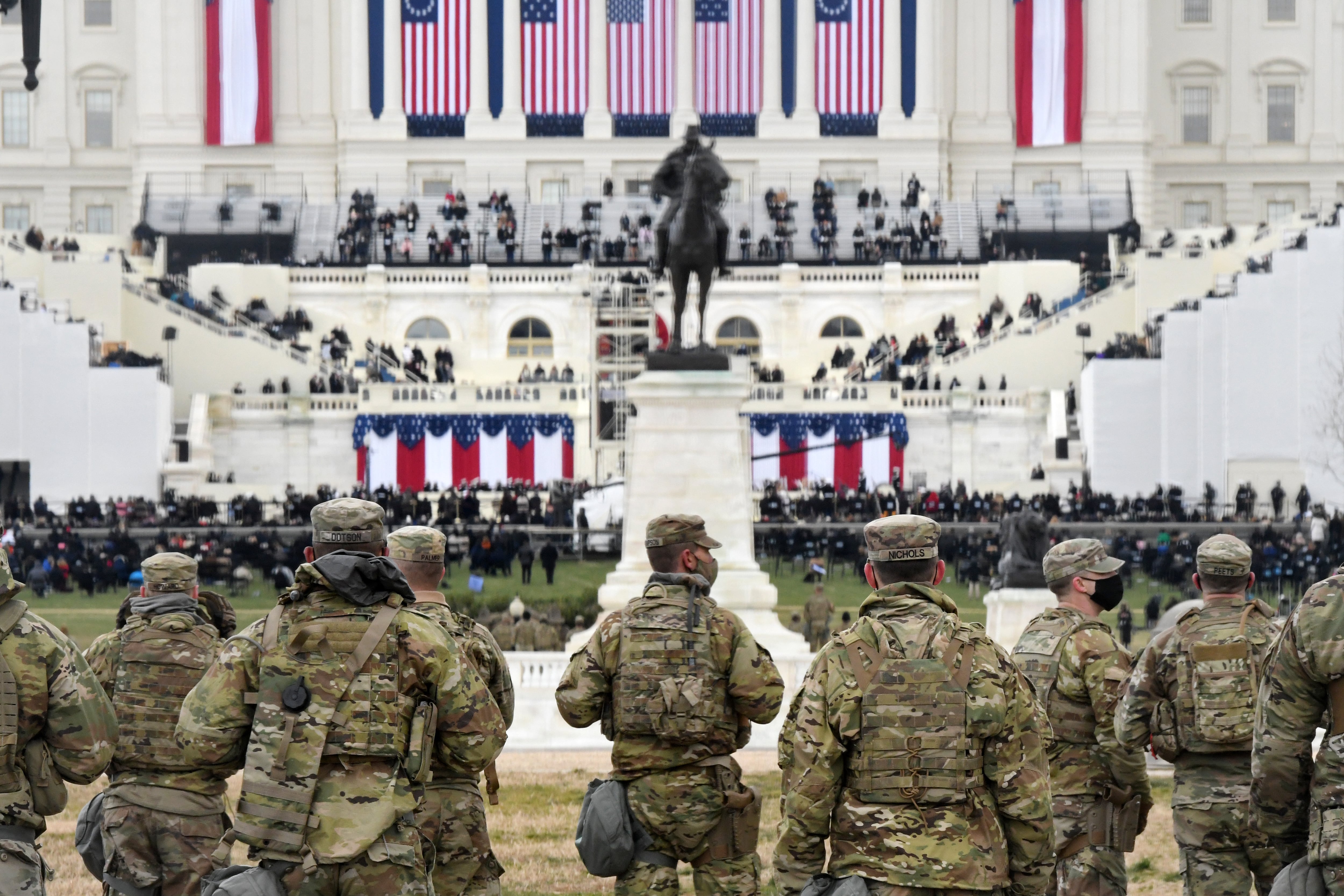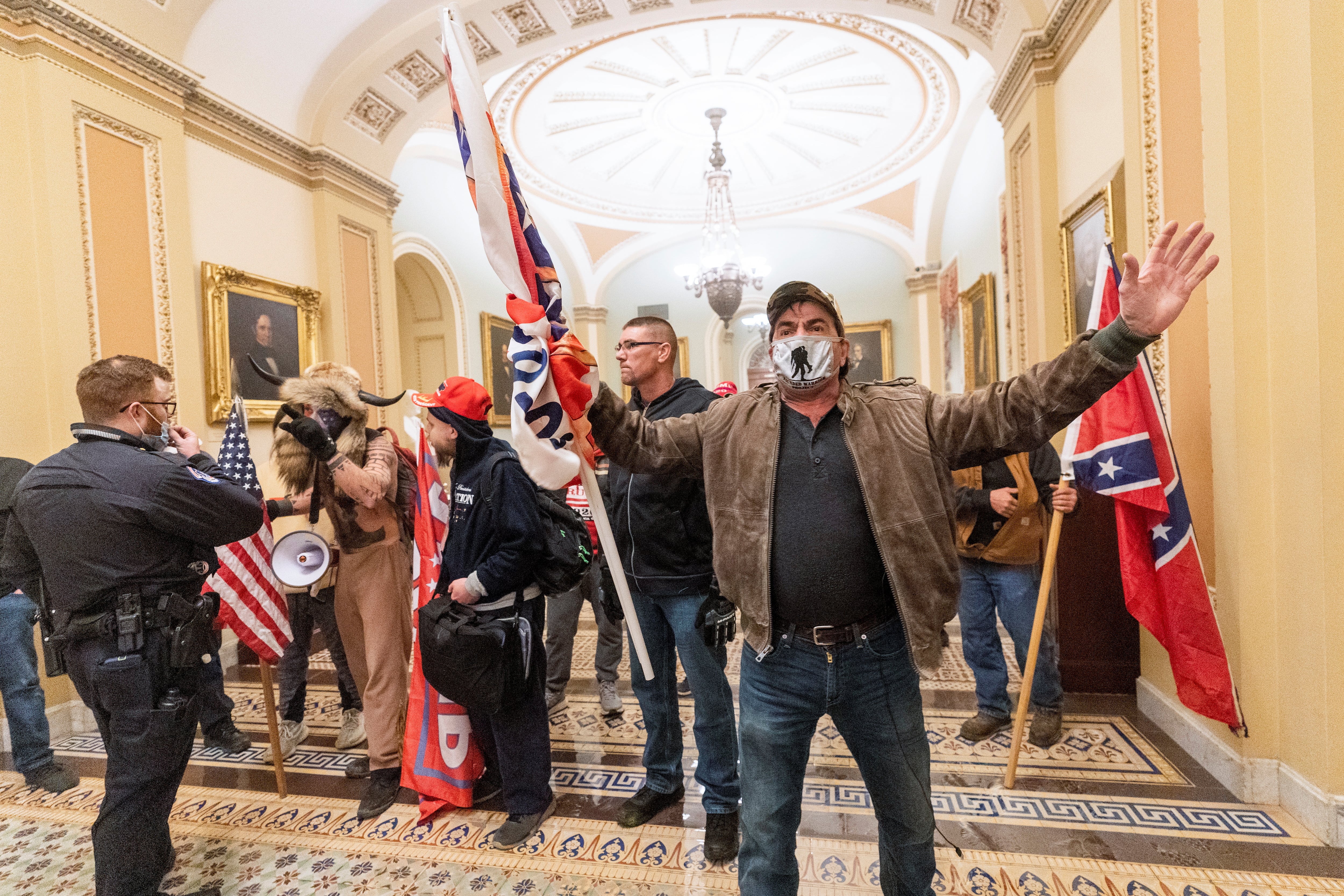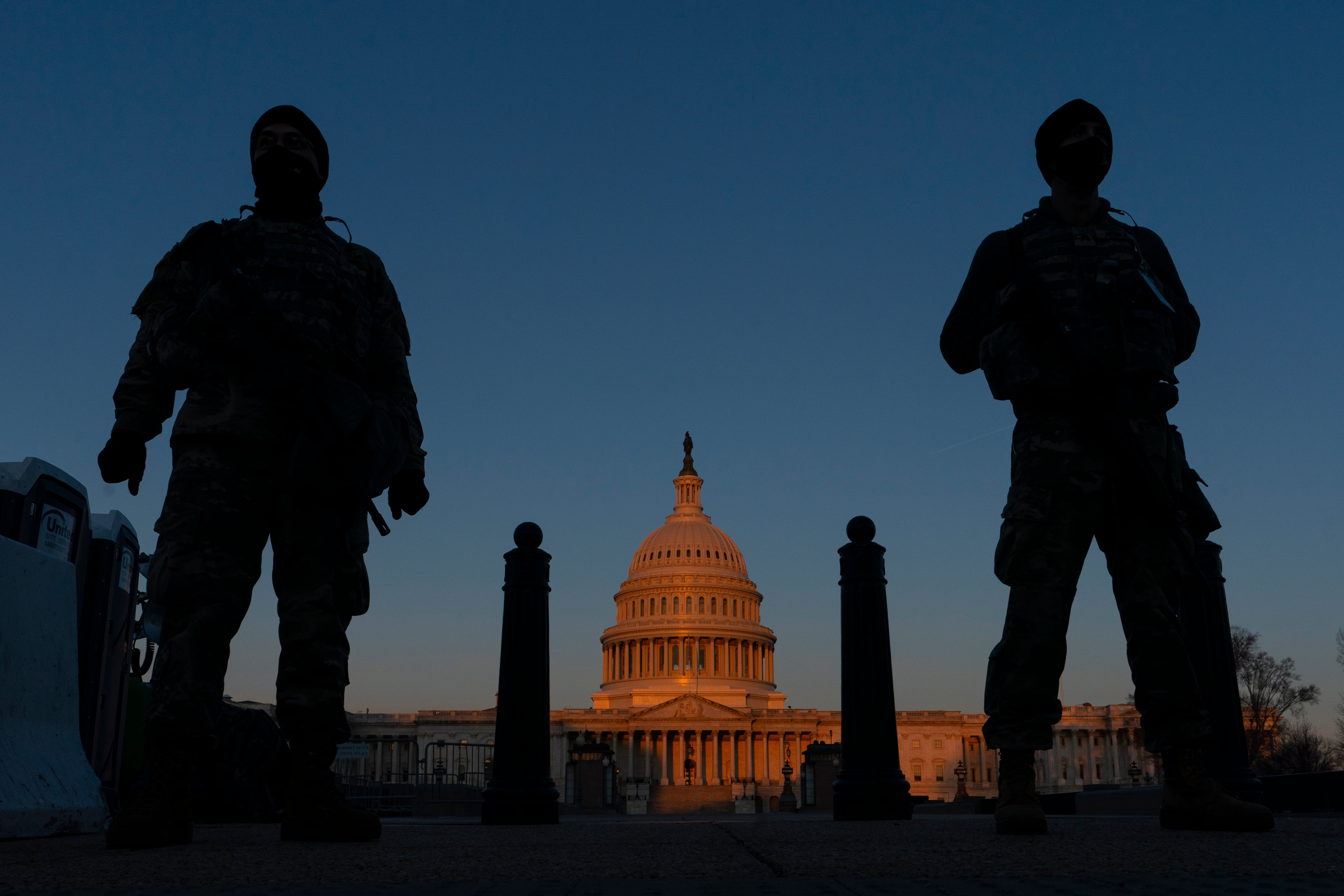Members of the commission investigating the attack on the U.S. Capitol on Jan. 6, 2021, on Thursday asserted that President Donald Trump made no efforts to stop rioters even as Vice President Mike Pence attempted to order National Guard troops to quell the violence.
“Not only did President Trump refuse to tell the mob to leave the Capitol, he placed no call to any element of the United States government to instruct that the Capitol be defended,” said Rep. Liz Cheney, R-Wyo., during the panel’s wide-ranging Thursday night hearing on the event.
“He did not call his secretary of defense on Jan. 6. He did not talk to his Attorney General. He did not talk to the Department of Homeland Security,” Cheney added. “President Trump gave no order to deploy the National Guard that day. And he made no effort to work with the Department of Justice to coordinate and deploy law enforcement assets.”
The statements were backed up with testimony from Joint Chiefs Chairman Gen. Mark Milley, who said that Pence told Pentagon leaders to “get the Guard down here, put down this situation.”
RELATED

In contrast, Milley said, Trump Chief of Staff Mark Meadows told Milley that military officials needed to “kill the narrative that the Vice President is making all the decisions” and worked against sending personnel to help with the escalating situation.
Questions over the reason behind delays in the deployment of National Guard troops to the Capitol complex have been a key point of contention in accounts of Jan. 6. Hundreds of pro-Trump supporters breached the Capitol building that day in an attempt to block certification of the 2020 U.S. presidential election results.
Five people died during the riot, and three Capitol Police officers died in the days following the attack.
Trump administration officials have blamed Democratic lawmakers for the delay in deploying military members on Jan. 6, saying requests for help didn’t come until hours into the violence.
Thursday’s hearing — the first in a series of primetime events designed to offer “a comprehensive account” of the attack — also featured testimony from several of those officers. They countered Trump’s repeated assertions that the crowd that pushed past police lines that day were “peaceful” and lawful.
“There were officers on the ground. They were bleeding. They were throwing up,” said Caroline Edwards, an officer working security that day.
“I saw friends with blood all over their faces. I was slipping in people’s blood … I just remember that moment of stepping behind the line and just seeing the absolute war zone that the west front had become.”
Thousands of National Guard troops were eventually deployed to Capitol Hill to clear out and secure the area, but not until hours after the rioters had pushed inside the Capitol building and ransacked multiple offices.
The assault forced both the House and Senate to suspend their certification proceedings and scramble to secure areas.
Officials have said Pence narrowly avoided direct confrontation with the crowd members, many of whom were chanting that he was a traitor for not overturning the election results — a move that most legal experts have said was unconstitutional and impossible.
RELATED

Milley described Pence as “very animated, very direct, very firm” in the need for Guard troops to help with crowd control as soon as possible. But he said other White House officials did not share the same opinion.
Committee members also noted other accounts of potential military misuse by the Trump administration, including a plan discussed weeks before the Capitol assault for military forces to seize voting machines and declare state elections invalid by executive decree.
“Jan. 6 was the culmination of an attempted coup, a brazen attempt to overthrow the government,” said committee chairman Bennie Thompson, D-Miss. “The violence was no accident. It represented Trump’s last stand, a most desperate chance to halt the transfer of power.”
The committee has two more hearings planned for next week to delve further into the instigation and response to the riots. Republican leadership in the House and Senate have refused to take part in the proceedings, labeling them politically motivated theater.
Leo covers Congress, Veterans Affairs and the White House for Military Times. He has covered Washington, D.C. since 2004, focusing on military personnel and veterans policies. His work has earned numerous honors, including a 2009 Polk award, a 2010 National Headliner Award, the IAVA Leadership in Journalism award and the VFW News Media award.




